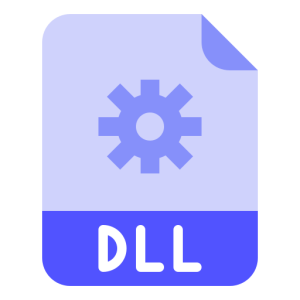Description
Description of “VCCORLIB140.DLL”
VCCORLIB140.DLL is a dynamic link library (DLL) file that is an essential component of the Microsoft Visual C++ Redistributable package. It is specifically designed to provide runtime support for applications developed using the Microsoft Visual C++ programming language, incorporating the C++/CX language extensions. The DLL contains a set of functions, routines, and resources that enable the proper execution and functioning of C++/CX applications on a Windows operating system.
This library plays a crucial role in managing various aspects of program execution, including memory allocation, exception handling, and asynchronous programming using Windows Runtime (WinRT). It provides essential runtime support for C++/CX applications, ensuring they run smoothly and interact seamlessly with the underlying Windows environment and WinRT APIs.
VCCORLIB140.DLL is commonly required by many software applications developed using Microsoft Visual C++ and C++/CX language extensions. Developers often include the necessary redistributable packages along with their applications to ensure that users have the required runtime components, including VCCORLIB140.DLL, installed on their systems.
It’s important to note that the version number “140” in the filename (“VCCORLIB140.DLL”) corresponds to the version of Microsoft Visual Studio and the C++ runtime library. Different versions of Visual Studio and the associated runtime libraries might have different version numbers in their filenames. Users should ensure that they have the correct version of the Microsoft Visual C++ Redistributable package installed to avoid compatibility issues with software that depends on VCCORLIB140.DLL.
Purpose and Functionality
VCCORLIB140.DLL serves as a crucial runtime component for C++/CX applications, providing the necessary support for seamless interaction with the Windows environment and WinRT APIs. Its primary functions include:
- Memory Management: The DLL facilitates efficient memory allocation and deallocation for C++/CX applications, ensuring optimal use of system resources. It also provides support for reference counting, garbage collection, and memory tracking mechanisms specific to C++/CX.
- Exception Handling: VCCORLIB140.DLL plays a critical role in managing exceptions and errors that occur during program execution in C++/CX applications. It enables applications to gracefully handle unexpected situations without crashing, allowing for robust error handling and recovery.
- Asynchronous Programming: The DLL provides the necessary infrastructure for writing asynchronous code using Windows Runtime (WinRT) APIs in C++/CX applications. It enables developers to use the await/async pattern for performing non-blocking I/O operations, event handling, and concurrent programming.
Common Use Cases
VCCORLIB140.DLL is extensively utilized by software applications developed using Microsoft Visual C++ and C++/CX language extensions. It is commonly required for:
- Windows Store Apps: C++/CX applications targeting the Windows Store platform rely on VCCORLIB140.DLL for runtime support and interaction with the Windows Runtime (WinRT) APIs.
- Windows Desktop Applications: Various desktop applications developed using Microsoft Visual C++ and incorporating C++/CX language extensions utilize VCCORLIB140.DLL for efficient memory management, exception handling, and asynchronous programming.

